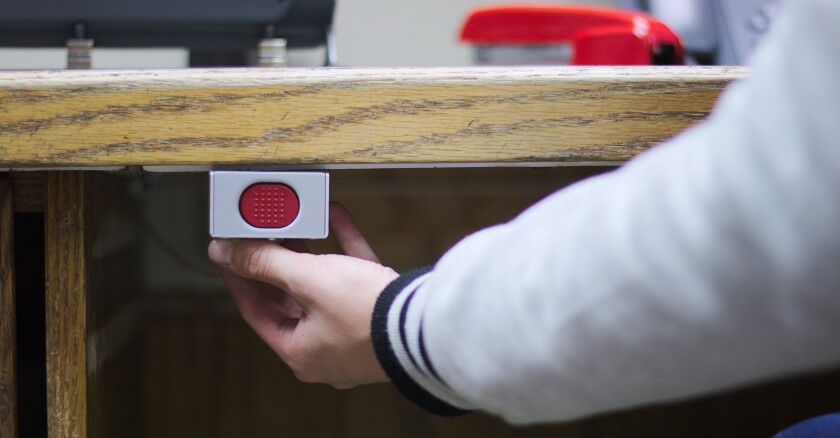Texas schools would need silent panic buttons in classrooms and to ensure two-way emergency radios used by law enforcement and first responders work on campus under a new proposed state rule.
The proposed school safety standards rule would also require that all doors and windows that lead into school buildings be locked and monitored.
The Texas Education Agency (TEA) released the specifics of the proposed rule last week.
School districts can apply for grants from the agency for spending on various security-related costs over the next two years and toward the installment of silent panic alert technology this year, according to the agency’s guidance.
Grant funds will be awarded using a per-pupil count, but districts will receive at least $200,000 to ensure small rural districts can also tackle infrastructure costs.
The panic alert technology generally would allow campus staff to manually press a button or use a software application to signal a life-threatening emergency, such as an active shooter or intruder. The system should also notify administrators and emergency responders of the threat.
Districts would also be required to conduct twice-yearly maintenance checks to ensure two-way radio equipment used by law enforcement and first responders works inside school buildings.
The agency’s proposed rule outlines how often maintenance must be performed on doors, windows and communication systems as well as how administrators should report noncompliance.
In June, TEA issued new safety guidance outlining the process for exterior door checks and directed school districts to convene their safety and security committees to review their safety plans.
Earlier this month, Gov. Greg Abbott and other Republican legislative leaders shifted $775 million to border security and school safety, including $400 million to assist school districts in replacing or upgrading doors, windows, fencing, communication tools and other safety measures.
TEA is taking feedback on the proposed rule from Nov. 11 to Dec. 12, before a final version is submitted to the Texas Register. If adopted, the rule would go into effect within two days of submission.
©2022 The Dallas Morning News. Distributed by Tribune Content Agency, LLC.
Funding for Schools to Ensure Security Purchases
New rules and recent funding are intended to help districts statewide upgrade and maintain safety measures.

Shutterstock







